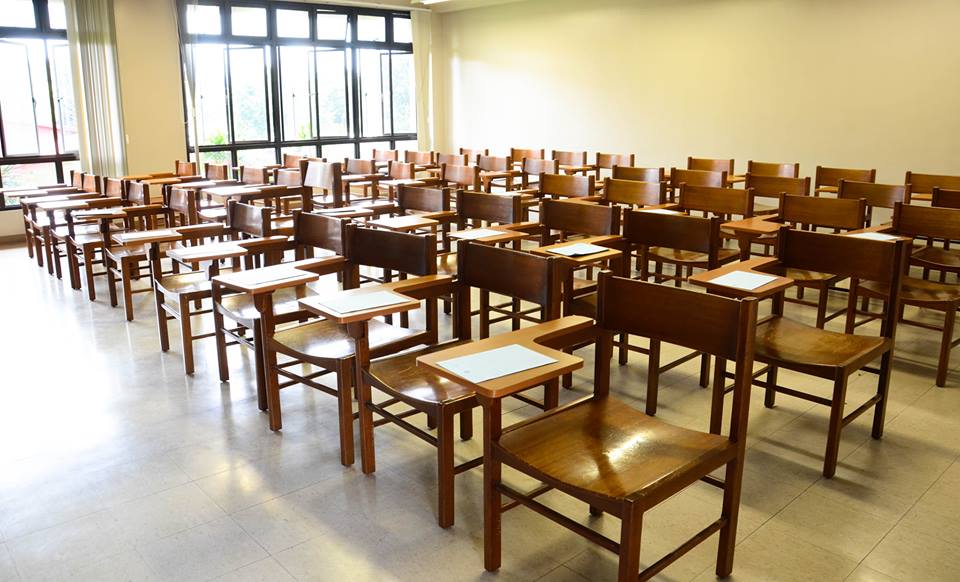For the students of Harvard University, finals week does not exist. Instead of automatically assuming that every class will have an exam at the end of a semester, professors now have to make arrangements with the registrar on the first week if they plan to hold a final exam.
Here in the Ateneo, however, finals week is a given reality, causing sleepless nights and bringing what is possibly the heaviest “hell week” of the semester. Final exams come in many forms: In a blue book with tests ranging from multiple choice, identification, true or false and an essay portion, in nerve-wracking oral exams as well as caffeine-fueled all-nighters spent writing final papers.
With Harvard’s decision to remove finals, one has to wonder if finals week is really necessary. Considering the plethora of requirements already submitted during the course of a semester such as homework, quizzes and long tests, among others, are final exams really necessary for evaluating students today?
For health sciences sophomore Carlos Mendoza, finals are a great way to refresh knowledge already learned from long tests and quizzes. He adds that finals themselves should depend on the discretion of the professor involved.
However, Mendoza thinks the concept of a comprehensive final can only cover so much information and delve so deep into the analysis needed for long tests and quizzes. With this in mind, finals might not be proper assessment tools per se, but may instead be little more than heavy memory games with higher stakes.
As to the method of assessing and evaluating learning, final exams are traditionally considered the only move to make at the end of each semester. If this practice is removed on the basis of comfort, what then can replace it? Would doing away with finals be the right move to make, or would following Harvard’s footsteps be a case of the blind leading the blind?
Investigating bliss
As Harvard’s three-year-old decision to cut finals is still standing today, it seems that it has been effective in one way or another. Despite this, the decision of the prestigious university was initially met with much surprise and criticism.
According to a 2010 article by The Huffington Post entitled “No More Final Exams at Harvard?” professors decided to forego final exams because they “questioned their quality as assessment tools and disliked the responsibility of proctoring them.” Based on this article’s statistics, 23% of the school–1,137 classes–gave final exams in 2010, showing that the Harvard faculty was capitalizing on their option of waiving a final exam.
Critics Chester Finn and Mickey Muldoon from The National Review said that, with finals done away with, there would be no way to see if students have retained a significant portion of the knowledge they were supposed to have acquired throughout the semester. In addition, these critics stated that their own final exams had forced them “to think, to study, to synthesize, and to learn”—something apparently a mere paper could never provide.
According to Finn and Muldoon, “Harvard is yielding to education’s most primitive temptation: Lowering standards and waiving measurements for the sake of convenience.”
To add to this list of criticisms, an article from Harvard Magazine published months after the decision to remove final exams stated that less students were coming to class at the end of every semester.
In response to the lack of a traditional, written final, Harvard devised a new curriculum in 2009. It involves more creative final exam alternatives such as presentations and real-life simulations, among others.
Perhaps using more creative means to present a final could be a better way to assess knowledge retained rather than a large memory game. With this system standing today, the Harvard faculty seems to think that doing away with finals has been effective.
The blue book
Regardless of Harvard’s now three-year-old decision, students at the Ateneo still undergo the rigorous trial that is finals week.
According to Eduardo Calasanz, the Associate Dean of Academic Affairs and an instructor of the Philosophy Department, final exams are “supposed to be an assessment of what the students have been able to, first of all, get from the course, and secondly, what they are able to do with this knowledge–at least in some immediate way.”
Calasanz also says that the method of giving finals exams “depends on the discipline.” For his philosophy classes, he gives oral exams because he finds that they are an appropriate method of examination for a subject that needs a student to think on his or her feet. For math subjects in the core curriculum, on the other hand, written tests are given because this allows students more time to think.
In some cases, however, students may not even have to deal with the pressure of final examinations. Some professors exempt students from taking them once they reach a certain grade.
For instance, if a student of Artoni Ang, an instructor of the Physics department, has a pre-final grade of B+ or above, he gives them the option to forego the exam at the end of the semester. “One of the main reasons [I do that] is to encourage them to study harder within the first 80% of their final grade,” says Ang.
Roy Agustin, an instructor of the English Department, supposes that students’ maturity should also be considered when deciding what form final exams should take. He claims that high school students need the objective finals, while college and graduate students may require different means to gain the most out of what they have learned, such as oral exams or papers.
“We like to change things up depending on how mature the students are and give them tests that can get the most out of what they’ve learned,” Agustin says. At least for him, the objective final is necessary, if only for student who are at that level of maturity.
A taste of Harvard in Loyola
Though Harvard University believes that traditional final exams are unnecessary, some instructors in the Ateneo believe that it is not a good move for the Loyola Schools. Adopting Harvard’s system at all would even seem like the Ateneo was merely copying the Ivy League university.
Ang thinks that following Harvard’s example of not having final exams may be beneficial only to the juniors and seniors. “For the first two years of your college education, I think it’s important to have final exams. Not only to test whether or not you learned from the class, but to also develop the work habit. So at the end of the semester, you have to go back and learn everything again. Or, better yet, you learn everything immediately so when you reach the final exam, you just have to review a little,” he says.
Calasanz also thinks that the Ateneo shouldn’t just copy Harvard just because it’s Harvard. The Harvard faculty may have made the decision to cut final exams, but “the Yale faculty did not make that decision. The Oxford faculty did not make that decision. Sorbonne did not make that decision. So, [Harvard’s system] is one approach among many.” He also says that as far as he can tell, the Ateneo would not really benefit from adopting Harvard’s system of not having final exams.
Harvard University is entitled to do away with final exams if it sees them as unnecessary and ineffective, but this decision doesn’t look like something the Ateneo will likely follow in the near future. Basing that decision solely on Harvard is a little monkey-see-monkey-do. Calasanz says, “If you tell me that Harvard has done away with final exams, then I’ll tell you that Sorbonne has not.”
In the end, it is the university that gets to decide how to assess its students, and in the Ateneo, the blue books will likely live on.







